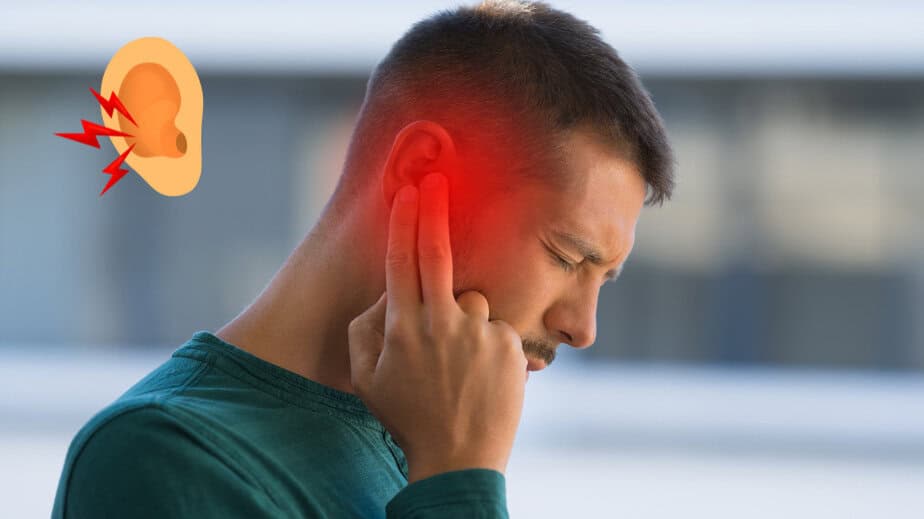Imagine a quiet evening when everything around you calms down—and suddenly you feel a sharp pain in your ear. It seems to pulse from the inside, radiating to your temple or even your teeth. Is it just a random occurrence? Or a signal from your body that something serious is happening?
Ear pain isn’t just an inconvenience you can “push through”. It’s often the first sign of an inflammatory process or a hidden problem developing unnoticed. Sometimes it goes away within a few hours, but other times it turns into a worrying alarm.
What are the possible causes?
There are many reasons your ear might hurt. For some, it’s otitis after a common cold. For others, it’s a wax plug pressing on the eardrum. And sometimes the real culprit isn’t in the ear at all but, say, an inflamed tooth or even the cervical spine.
Specialists highlight the following most common causes of ear pain:
- Otitis. An infectious inflammation of the middle or outer ear.
- Earwax plugs. A mundane but very common cause.
- Injuries. Even a routine attempt to clean the ear can lead to scratches.
- Throat or nasal infections. These can radiate pain to the ear when complications arise.
- Neuralgia or temporomandibular joint problems. These cause a specific ear pain that’s hard to distinguish from inflammation.
Now imagine a child who suddenly starts crying at night for no obvious reason. Very often it’s ear pain. Experienced parents know this is one of the most common problems in childhood.
Following that last point, it’s worth emphasizing: even if the pain seems minor, ignoring it is dangerous. Behind it may be anything from mild irritation to a serious condition that affects hearing.
When should you see a doctor?
Do you always need to rush to an ENT? Not necessarily. But there are symptoms that definitely require medical attention.
Contact a doctor at North Fulton ENT if the pain:
- lasts longer than two days,
- is accompanied by discharge of pus and/or blood,
- gets worse and keeps you from sleeping,
- is accompanied by a high fever,
- comes with a sharp drop in hearing,
- causes dizziness.
Each of these points is a danger signal—especially when it comes to a child. Children’s ears are more vulnerable, and complications can develop quickly.
Why is self-treatment risky?
Old “home remedies” not only frequently fail to help, but can cause harm. Alcohol-based drops, oils, or warming compresses in the presence of a purulent process can only make things worse. In the best case, you simply lose time. In the worst case, you risk a complication that can alter your hearing permanently.
The ear is a very delicate organ. You can compare it to a fine musical box: any improper intervention distorts the sound. And while a musical instrument can be repaired, with hearing it’s much more complicated.
How will a doctor help solve the problem?
First and foremost—diagnosis. The doctor examines the ear using special instruments, determines the source of the pain, and only then proposes treatment. Most often, the following measures are used:
- irrigation of the ear canal,
- removal of earwax plugs,
- prescription of anti-inflammatory/antibacterial medications,
- in some cases—physiotherapy.
Importantly, you get a precise answer to the question “why does it hurt”, rather than guessing. That is the main advantage of consulting a specialist.
Timely treatment often helps avoid complications such as chronic otitis, hearing problems, or even the spread of infection to other organs.
Don’t wait for the pain to get worse
Ear pain isn’t a trifle you can “deal with later”. It’s your body’s voice saying, “pay attention”. Sometimes it’s quiet; sometimes it screams with sharp pain—but it always has a cause.
Should you risk your health by trying to endure it or searching for “quick tips” on the internet? No. The right step is to see a doctor in time. Then the pain will remain just a brief episode—not the beginning of long-term problems.
Read next: Avoid These Vegetables to Get Rid of Pain
